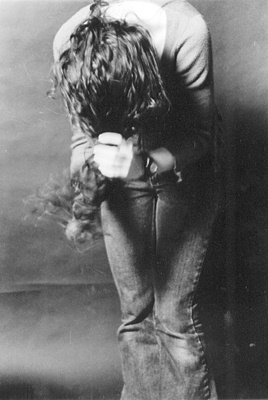All Nonfiction
- Bullying
- Books
- Academic
- Author Interviews
- Celebrity interviews
- College Articles
- College Essays
- Educator of the Year
- Heroes
- Interviews
- Memoir
- Personal Experience
- Sports
- Travel & Culture
All Opinions
- Bullying
- Current Events / Politics
- Discrimination
- Drugs / Alcohol / Smoking
- Entertainment / Celebrities
- Environment
- Love / Relationships
- Movies / Music / TV
- Pop Culture / Trends
- School / College
- Social Issues / Civics
- Spirituality / Religion
- Sports / Hobbies
All Hot Topics
- Bullying
- Community Service
- Environment
- Health
- Letters to the Editor
- Pride & Prejudice
- What Matters
- Back
Summer Guide
- Program Links
- Program Reviews
- Back
College Guide
- College Links
- College Reviews
- College Essays
- College Articles
- Back
THH: The Gender Stereotype Paradox
There’s something uncomfortable about gender stereotypes, and not just the offensive part. The stereotype is clear: the delicate, sun-shaded, doe-eyed damsel, and the roaring buff man’s man. She’s frilly and he’s a woodcut. They work out perfectly on screen.
It’s also an unfair portrayal of the world’s approximately 3.65 billion males and approximately 3.65 billion females. And yes, we’re talking billions, numbers we can barely fathom in our little human heads. How many are going to make the cut, drawn from literally millions of different homes, social environments, contexts, and childhoods? For this utopia, probably only a few.
It’s universally accepted we need to reject gender stereotypes.
There’s just one problem. Let’s say a girl decides to be herself. And that person happens to be someone delicate, tan, thin, and Caucasian; she’s kind, open-minded, and adept at wading through social waters. She’s beautiful and she’s okay with that. Her boyfriend is an MVP champ. Her life looks like it’s going somewhere.
But everywhere she does go, she sees her face plastered as the poster girl stereotype, the inevitable undertow to the movements of feminism, racial and gender diversity. She is the enemy, specifically because she met the cookie cutter requirements. Having won the genetic lottery, all are warned of her tragic character traits, physical and social. They’re told to stay away from sharing anything with her. And above all, she will be pressured to change, in order to maintain that nobody else is allowed to become the stereotype.
A similar situation can occur on the other side of the spectrum. It doesn’t matter. A boy could ride through high school as the classic football rockstar, with a great girl, himself muscled, thin, Caucasian, a guy’s guy. He’ll be rained on by outside criticism; regardless of how hard he’s actually worked to get himself where he is, he could be looked down upon as privileged and lucky, embodying the ultimate and thus despised male stereotype. Either way, another “can” or “cannot” situation arises: no matter who you are or want to become, a certain set of traits is again forbidden from being expressed. There might be a different lieu of victims, but the result is the same. People are limited from being themselves.
Whenever I see or hear gender stereotypes brought up, I can’t help but wonder what I’m missing, as the singular exception almost always pops up in my head. What about those who happen to fit the stereotype’s physical and social traits? Does that automatically reduce them to prejudiced and privileged people? And until I watched the Representation Project’s “Rewrite the Story,” I had my qualms.
It turns out I was looking at it from the wrong angle, much like many of my peers do when they hear the word “stereotype.” Rejecting the stereo doesn’t mean discarding it for a new list of what’s okay and what’s not—it means letting that entire concept disappear. Releasing the idea of Type A or Type B is getting rid of boundaries. It’s completely letting go of limitations.
And when the single boy and girl archetype falls away, beautiful things start to happen. Diversity, one of nature’s greatest allies, brings home the prize. And as more narratives are brought to life, to represent and voice different situations and different stories, awareness can spread like wildfire. Acceptance can follow; learning accelerates.
And that’s the utopia I want to live in. That is why I choose to reject gender stereotypes.

Similar Articles
JOIN THE DISCUSSION
This article has 0 comments.

What does "THH" stand for? Good question! It's THE HOLY HITCHHIKE... No, I’m not even religious. The name is Ala Nova, and you have entered the domain of my discussion, thought, and paraphernalia. Enjoy, and let loose your commentary and suggestions below. A new column every Friday!